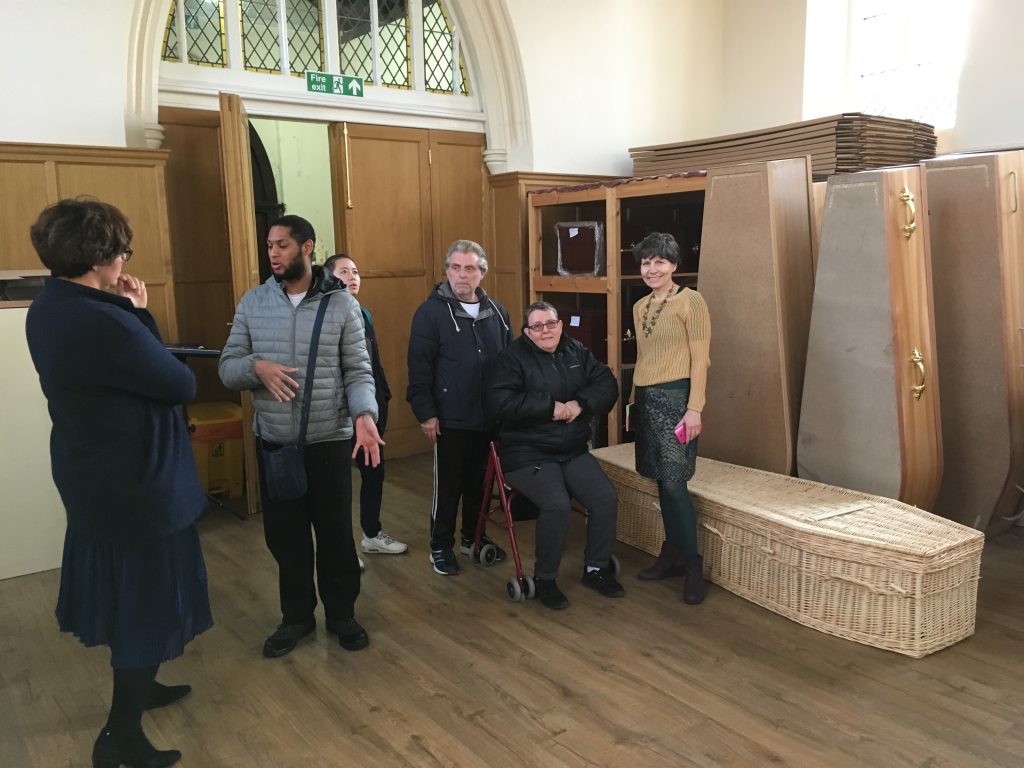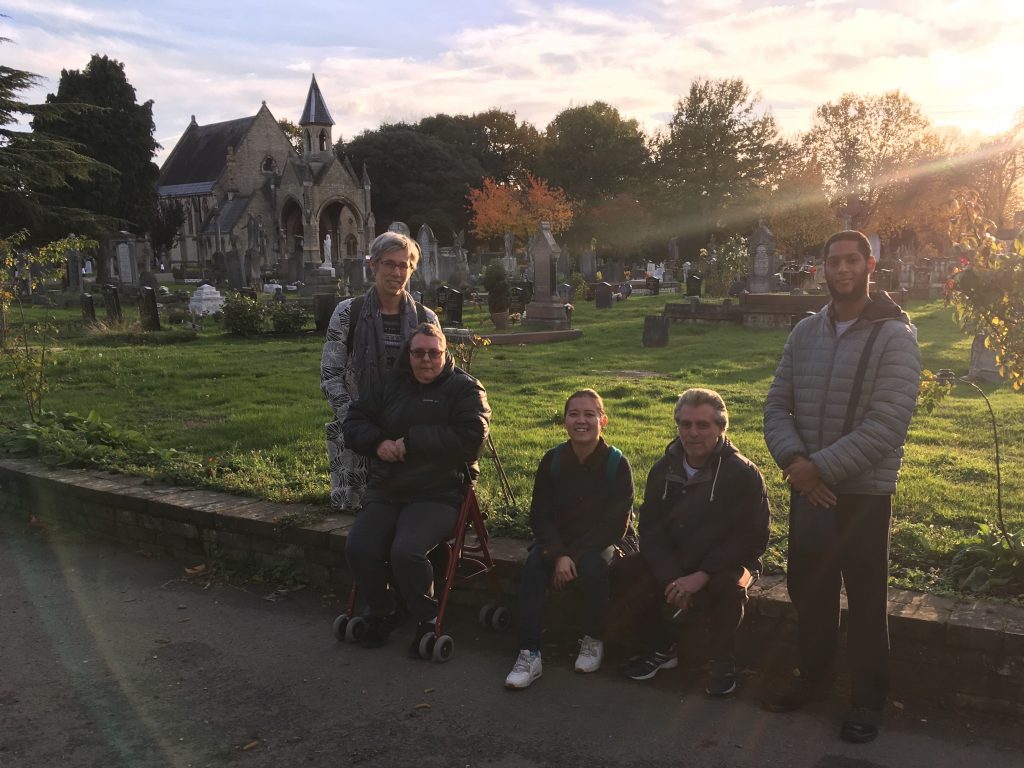I am looking at the results of our Talking About Dying Survey. We asked support staff to tell us whether, and how, they talk to people with intellectual disabilities about death and dying.
One comment jumps out at me. It’s from a staff member supporting a man with intellectual disabilities whose mother has died in the past year.
“He asks: Does my mum know she’s died? Where has she gone? Does she know she’s buried?”
There are several ways of looking at this. One is to think, well, clearly, this man needs help in understanding what death is. He doesn’t know that dead means dead.
The other is to realise that we’re looking at the emperor’s new clothes. Nobody can see them. It’s just that some people are better at owning up by asking the simplest of questions. Why isn’t he wearing any clothes? What is death?
(This happens a lot. “Do you want Brexit, everyone?” “What is Brexit?” “Brexit means Brexit!” Nobody is any the wiser.)
I am struck by the question about after-death awareness, because it seems to be the theme of my week. On Thursday, several people from our GRASSroots group went to visit Poppy’s funeral director at the cemetery round the corner. Here we are, having a jolly afternoon of tea and coffins.

We are shown around the mortuary at Poppy’s Funerals
The questions tumble out. Here is one that takes me by utter surprise, because it comes from someone who, I thought, has an excellent understanding of life and death.
Do bodies feel pain when they burn in the oven?
Would your answer be (a) yes (b) no or (c) don’t know? My immediate response is to answer “No! Because the body is dead,” whilst thinking rather smugly, “Here’s an opportunity to help a person with intellectual disabilities to understand that dead means dead.”
Other group members are keen to expand. “The body is just an empty shell, because the spirit has left it behind. It’s nothing. It doesn’t feel anything.”
“Oh, OK,” says the person who posed the question, looking only partly convinced. So I ask, “Do YOU think that bodies can feel pain after they die?”
“I don’t know, I’m confused…”, comes the answer. “Because physical pain and mental pain, aren’t they…”, meshing fingers, struggling to explain. We finally all come to the conclusion that yes, physical and mental pain are intertwined and often go together. But if suffering comes in many forms, one type of pain leading to another, than how can it make sense that the physical pain stops but awareness, spirit, mental energy somehow goes on?
The funeral woman owns up. “Actually, personally I don’t like the idea of being buried,” she says. “Because I’m claustrophobic. I know it’s nonsense to worry about that, because I’ll be dead, but still.” We all nod in sympathy. Like the man in our survey, we have difficulty imagining that we won’t know we’re buried.
And I suddenly realise that the question whether bodies feel pain during cremation is not a stupid question, or a simple question, but a profound one. It is a question about what happens after death. Some of us have our own answer to this, and if we’re lucky, the person who asks shares our perspective. But in truth, nobody knows for sure.
In our survey, we asked if the person with intellectual disabilities understood death, but perhaps we should have asked: do YOU, who supports him, understand death?
It occurs to me that after decades of working with people who are dying and bereaved, I am no closer to such understanding. But I am riveted by the way people with intellectual disabilities can shine a light on my confusion.
Perhaps we should send the GRASSroot members to Downing Street, to point out what the crucial questions are about Brexit.

Members of the GRASSroots group at the local cemetery this week
